
Migratory deaths, missing persons and their identification
Rachid Koraïchi, José Pablo Baraybar , Filippo Furri & Silvia Di Meo
Algerian visual artist, graduate of the Ecole des Beaux-Arts in Algiers and the Ecole Nationale Supérieure des Arts Décoratifs in Paris. In 2021, he created "Jardin d'Afrique" in Zarzis, Tunisia, a cemetery-garden for migrants who died at sea, for which work began in 2018. There are also buildings on the site where autopsies can be performed to help identify the remains.
Peruvian forensic anthropologist. He has worked for 30 years as an expert for the United Nations, the inter-American system and Peru. He is currently forensic coordinator for the International Committee of the Red Cross in Mexico and Central America, having worked on the identification of migrants who have died or disappeared in the Mediterranean Sea.
Anthropologist. He began working on the issue of migration deaths in 2011 with the Migreurop network and the Boats4people coalition, with whom he produced a support guide for families searching for missing loved ones. He takes part in university research programs (Mecmi with Carolina Kobelinsky in particular) and has also worked on the search and identification of bodies with the ICRC and EuroMed Rights, and joined the CommemorAction network.
Silvia Di Meo is an anthropologist and researcher at the University of Genova. She is president of the Mem-Med Mémoire Méditerranée association (based between Sicily and Tunisia), which works to find missing persons and provides legal and psychosocial support to the families of migrants who have died or disappeared on the borders of the Mediterranean.
On Thursday 11 January 2024 at 6.30pm, we welcomed artist Rachid Koraïchi, forensic anthropologist Jose-Pablo Baraybar and anthropologists Filippo Furri and Silvia Di Meo for a round table discussion on missing and dead migrants and their identification.
The Mediterranean has become a graveyard for migrants; it is estimated that more than 26,000 people have died since 2014 while attempting to cross from North Africa to Europe. Many others have died at Europe's borders: in the Balkans, in the Pas-de-Calais, in the Channel towards England and in the Atlantic Ocean towards the Canaries. Many of the bodies are never found, and of those that are, most are not identified.
Faced with this significant increase in anonymous deaths, our guests have joined forces to give these bodies a chance of one day being identified and treated with dignity. The aim is also to help families find their missing loved ones, to give them the opportunity to begin mourning and to take the administrative steps that require a death certificate. They will tell us about their work, the importance they attach to it, the obstacles they encounter and the role they see for an organisation like Médecins Sans Frontières in this work of tracing the identities of dead migrants.
José Pablo Baraybar is a Peruvian forensic anthropologist. He worked for 30 years as an expert for the United Nations, the inter-American system and Peru. He is currently forensic coordinator for the International Committee of the Red Cross in Mexico and Central America, having worked on the identification of migrants who have died or disappeared in the Mediterranean Sea.
Silvia Di Meo is an anthropologist and researcher at the University of Genova. She is president of the Mem-Med Mémoire Méditerranée association (based between Sicily and Tunisia), which works to find missing persons and provides legal and psychosocial support to the families of migrants who have died or disappeared on the borders of the Mediterranean.
Filippo Furri is an anthropologist. He began working on the issue of deaths in migration in 2011 with the Migreurop network and the Boats4people coalition, with whom he produced a guide to support families searching for missing relatives. He takes part in university research programmes (Mecmi with Carolina Kobelinsky in particular) and has also worked on the search for and identification of bodies with the ICRC and EuroMed Rights and joined the CommemorAction network.
Rachid Koraïchi is an Algerian visual artist who graduated from the Ecole des Beaux-Arts in Algiers and the Ecole Nationale Supérieure des Arts Décoratifs in Paris. In 2021, he created "Jardin d'Afrique" in Zarzis, Tunisia, a garden-cemetery for migrants who died at sea, work on which began in 2018. There are also buildings on the site where autopsies can be performed to help identify the remains.
The conference, which brought to a close a day of internal reflection on MSF's role in relation to migrant populations, was led by Sarah Chateau, Head of Programmes at MSF.
Here some pictures of the "Jardin d'Afrique" made by Rachid Koraïchi :
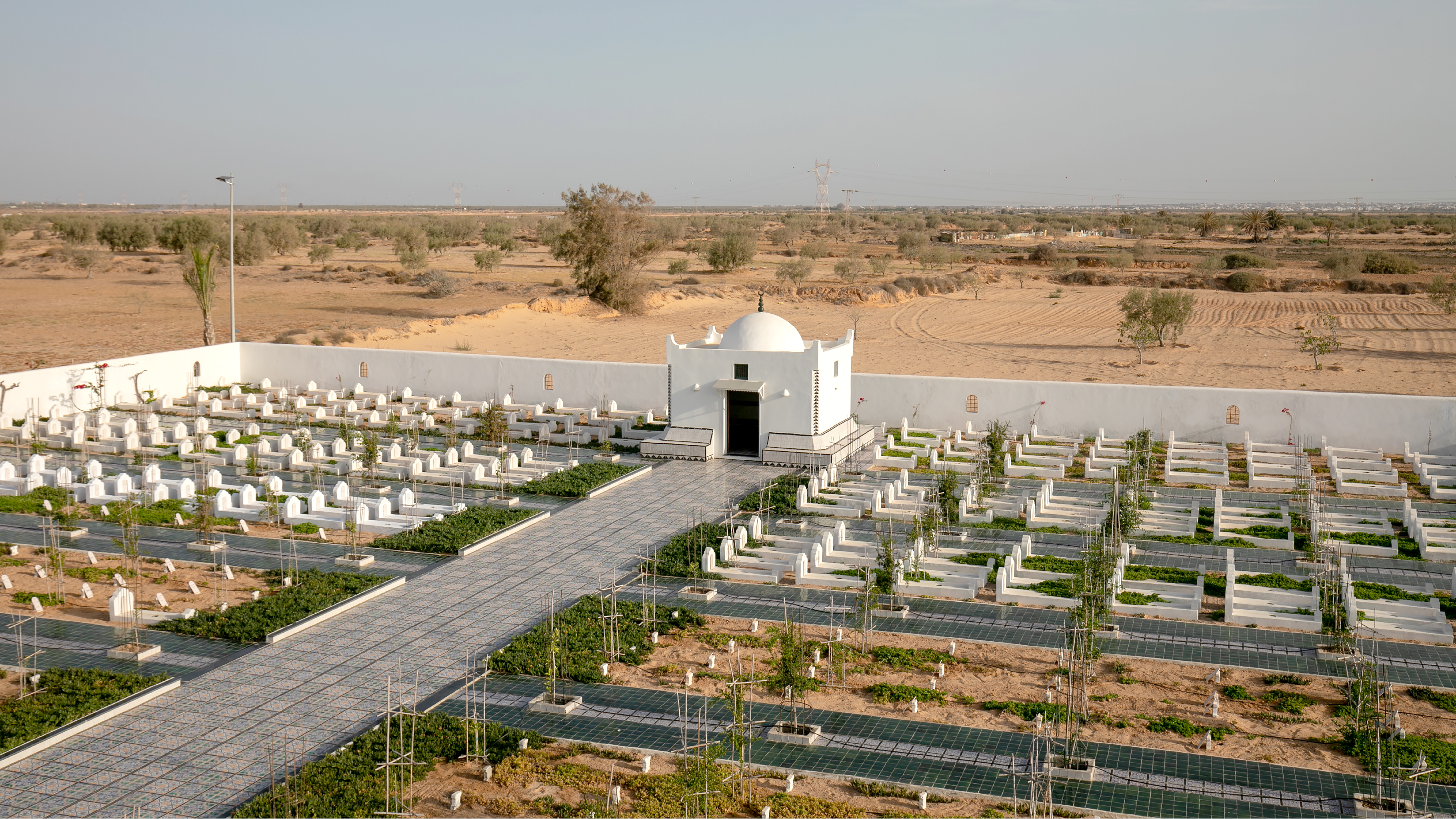
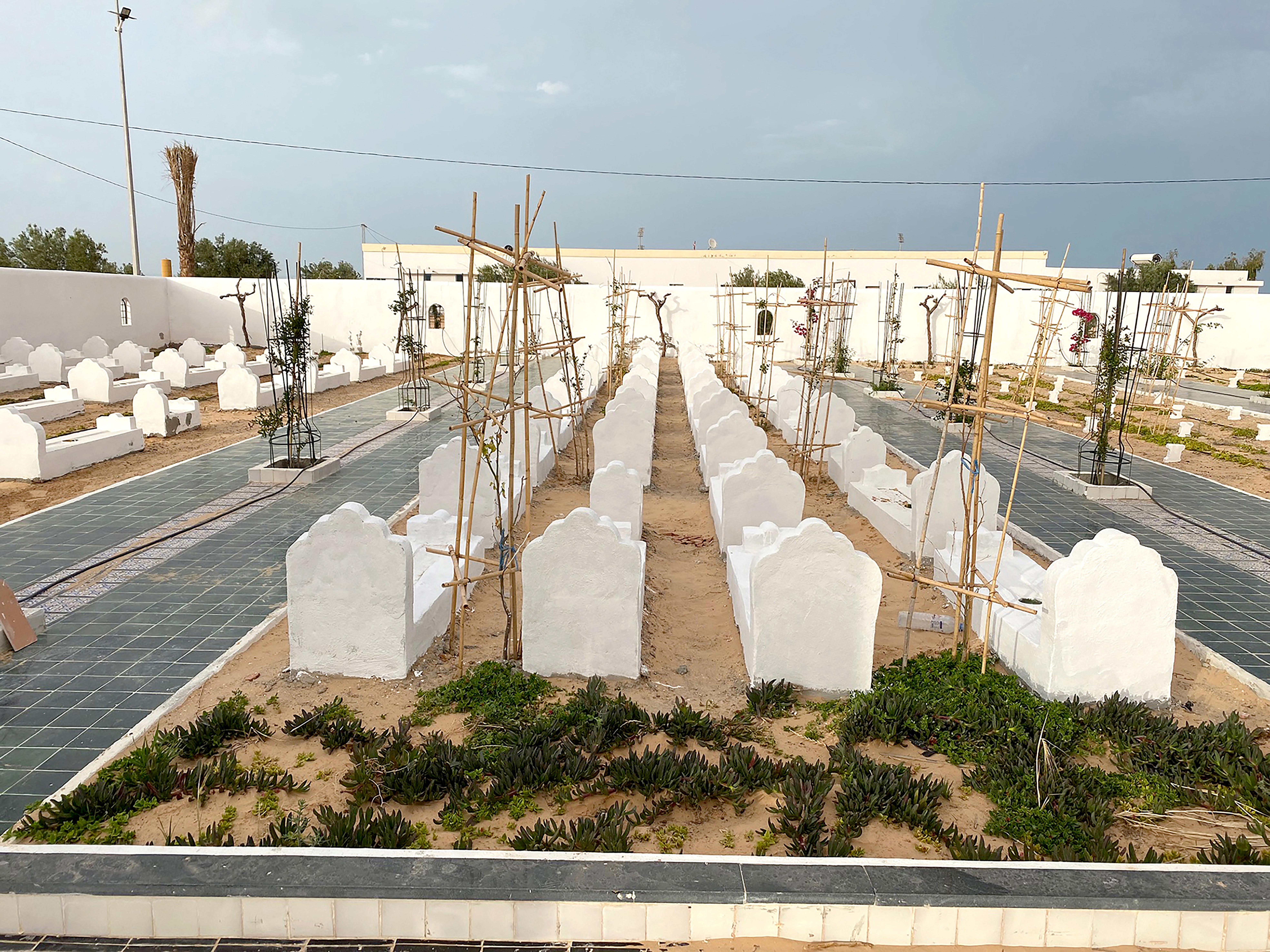
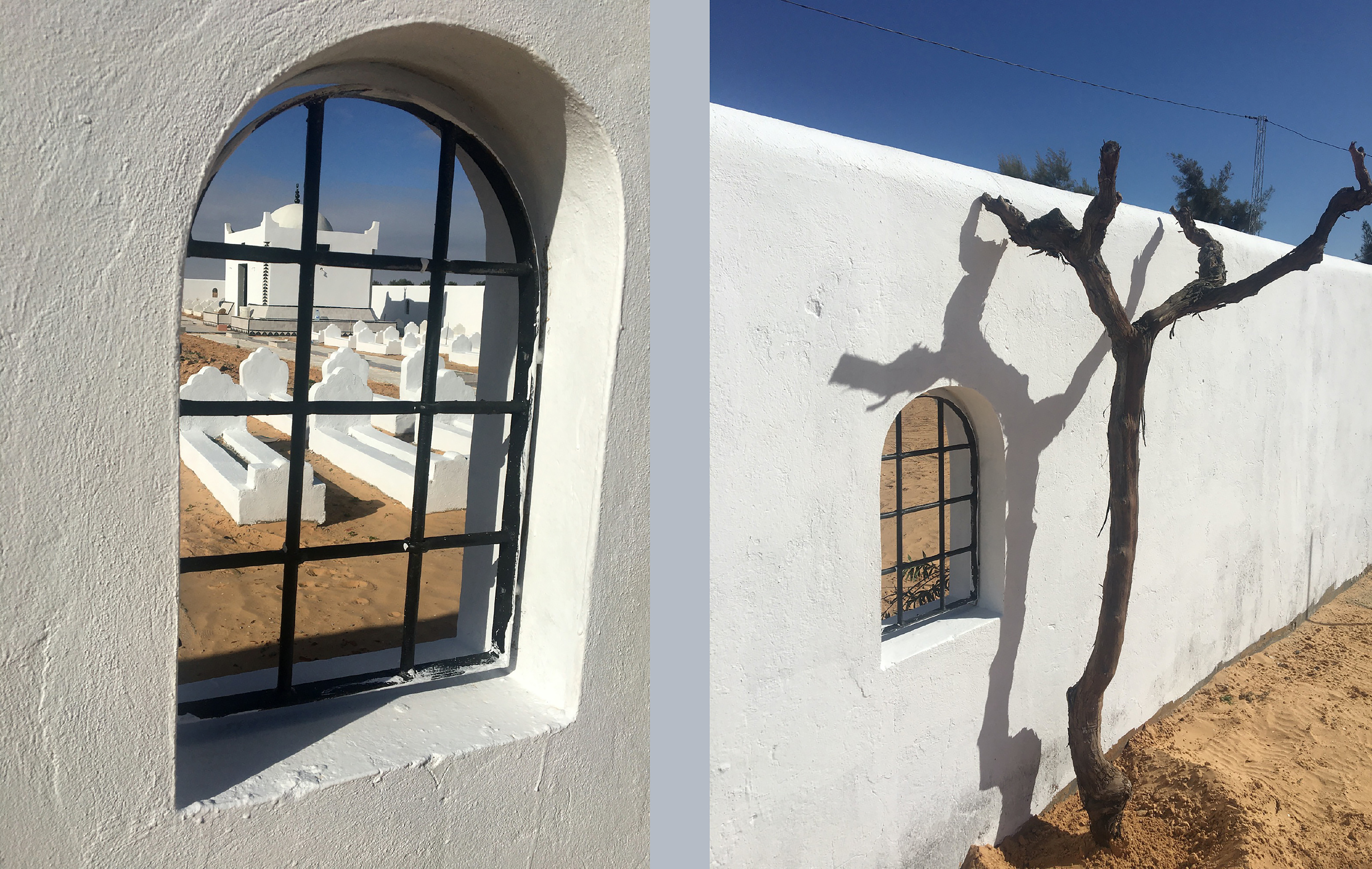

To cite this content :
Rachid Koraïchi, José Pablo Baraybar, Filippo Furri, Silvia Di Meo, “Migratory deaths, missing persons and their identification ”, 11 janvier 2024, URL : https://msf-crash.org/en/conferences-debates/migratory-deaths-missing-persons-and-their-identification
If you would like to comment on this article, you can find us on social media or contact us here:
Contribute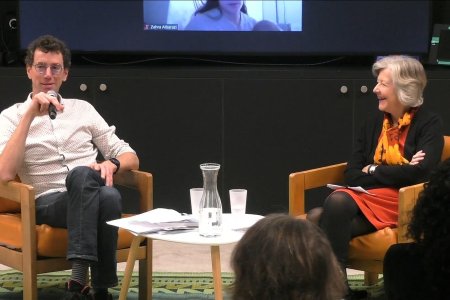 Conference
Conference
The challenges and dead ends of delivering aid in government-held areas in Syria
12/06/2023 - 07:30 PM 09:30 PM Ahmed Youssef Agnès Levallois Joseph DaherCrash and iReMMO were pleased to invite you on Wednesday 6 December at 6.30pm to a round table discussion on the challenges, constraints, and limits of humanitarian aid in Syrian government zones.
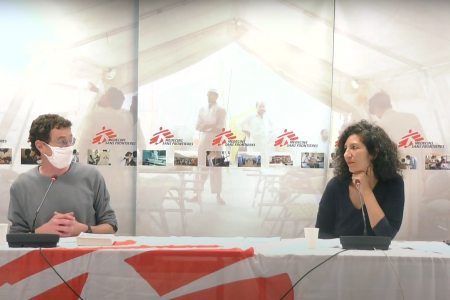 Conference
Conference
Asylum and exile. A history of the distinction between migrants / refugees
04/12/2021 - 06:30 PM 08:30 PM Karen AkokaOn April 12 2021 we had the great pleasure of hosting a virtual CRASH conference with political scientist and sociologist Karen Akoka, fresh from her publication in November of “Asylum and Exile. A History of the Refugee/Migrant Distinction" (La Découverte, 2020). The author described and analyzed the trajectory of OFPRA, the French institution founded in 1952 and responsible for granting refugee status; she provided an insight into how the history of the distinction between migrants and refugees was established in France.
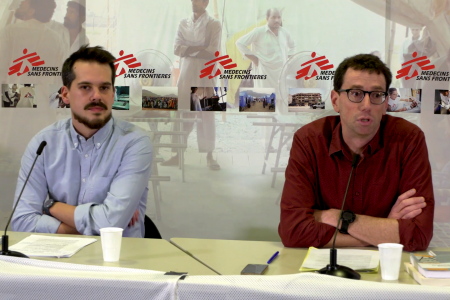 Conference
Conference
Borders and Hospitality
11/26/2018 - 06:00 PM 08:00 PM Benjamin BoudouConference/debate with Benjamin Boudou, political scientist and researcher at the Max Planck institute.
Past events
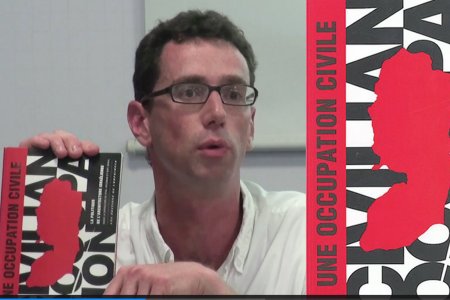 Conference
Conference
Eyal Weizman - Forensic Architecture at work
02/15/2016 - 07:00 PM 09:30 PM Michaël NeumanEyal Weizman, the founder of « Forensic Architecture » at the Goldsmiths College (University of London) came to present the project as well as a number of his works at a MSF - Crash conference organised at MSF.
 Conference
Conference
The polio eradication campaign put to test
02/04/2014 - 01:30 PM 07:30 PM Claire MagoneThe polio eradication campaign has indeniably and remarkably succeeded in tumbling down the number of polio cases worldwide. But difficulties currently faced by the Programme -pockets of social resistance in several countries, reinfection of some countries, outbreak of epidemics associated with strains of vaccine-derived polio viruses- indeed challenge one of the main assumptions underlying the objective of the eradication itself : the full compliance of an entire population to a public health program.
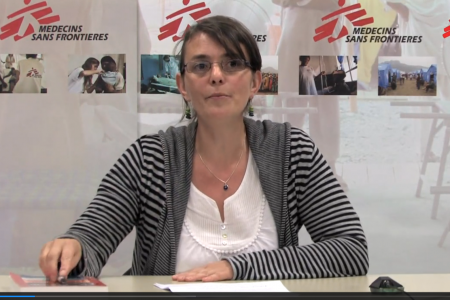 Conference
Conference
Living a Natural Disaster
11/03/2010 - 07:00 PM 09:00 PM Sandrine RevetPeople wandering through the rubble in Haiti, arms outstretched begging for help amid the floods in Pakistan: the media coverage of disasters invariably features helpless victims, overwhelmed by the disaster, waiting to be helped...
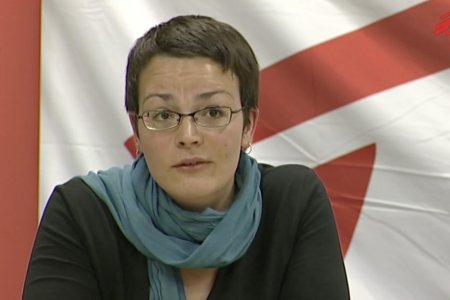 Lena Mucha
Conference
Lena Mucha
Conference
From their point of view
03/10/2009 - 07:00 PM 09:30 PM Caroline Abu-sadaThe reasons why we are accepted, tolerated or sometimes rejected in the contexts where we work are often obscure. Caroline Abu-Sada and her team of sociology student shed some light on these issues.
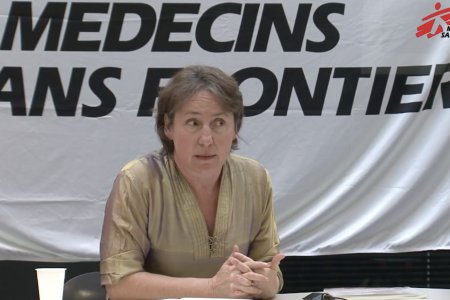 Jacob Zocherman
Conference
Jacob Zocherman
Conference
Grounds for divorce ? MSF and the international criminal court
04/08/2009 - 08:30 PM 10:30 PM Françoise Bouchet-SaulnierIn 1998 MSF decided to support the creation of the International Criminal Court. 10 years later MSF stated that it ‘would not cooperate and would not transmit any information to the ICC'. How can we explain this change of position?
Période
Newsletter
Subscribe to our newsletter to stay informed about our latest publications. Interested in a specific author or thematic? Subscribe to our email alerts.
